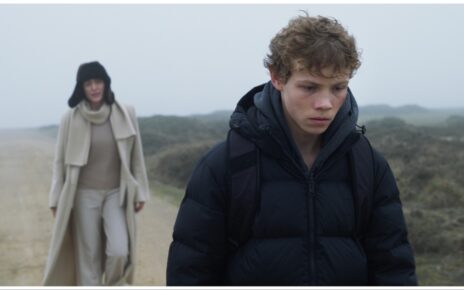As Toronto director Clement Virgo and the cast of “Brother” took the stage at the Princess of Wales Theatre on the night of Sept. 9 to soak in the hometown standing ovation after film’s world premiere, a delegation of Black producers from across Canada was settling in for a week of networking ops curated by the Black Screen Office (BSO).
This year has seen Black-led CBC and BET+ historical drama series “The Porter” (recently renewed for Season two) connect with audiences and critical kudos beyond Canada; Black talent empowerment and training organizations extend their reach; and the BSO forge platforms and alliances to strengthen and amplify its advocacy, research and funding development work.
This is not simply a moment, say the Toronto filmmakers, it’s accelerated momentum.
“When I first started out, making a film about the Black experience in Canada was fairly new, but over the last 25 years that has changed,” Virgo says. “We don’t take for granted who’s telling the story anymore.”
Beginning with “Rude” (1995), Virgo’s features have all screened at Toronto. Virgo’s TV credits include his limited series adaptation of Lawrence Hill’s novel “The Book of Negroes” (CBC, BET), produced by Conquering Lion, his company with Damon D’Oliveira. The shinle is now developing Esi Edugyan’s jazz-themed novel “Half-Blood Blues.”
The 1990s-era, Scarborough-set “Brother,” adapted from Canadian David Chariandy’s novel, unfolds its story with a specificity that Virgo looks for in all cinema, no matter the maker’s origin point.
“The most exciting films we’re seeing now show neighborhoods as themselves, whether it’s Toronto or Paris or wherever,” Virgo says. “The unique idiom of the patois in Toronto — with the Jamaican influence and Somalian words — is what happens when cultures bump up against each other; it’s like music.
“What’s interesting now is the multiplicity of stories and voices; they are not the fringe anymore; they are occupying the center.”
Kelly Fyffe-Marshall, winner of TIFF’s inaugural Shawn Mendes Changemaker Award in 2020 for her short “Black Bodies” — which was inspired by her experience of racism during a visit to California — emphasizes that entrepreneurship is key to building the industry in Canada.
“If we keep leaving for the U.S. we will lose the industry here,” she says. Her Sunflower Studios, which is devoted to sustainability and inclusive projects, is developing a series around Filipino comedy group Tita Collective, and another around a Jamaican comedian.
“When Morning Comes,” her debut feature that bows Sept. 12, follows a rambunctious Jamaican boy who runs away from home for a few days after his mother decides to relocate to Canada. Written in a two-week burst and shot mostly in Jamaica in March with Canadian and Jamaican crews, the film depicts “the real Jamaica, outside of the stereotypes,’ said Fyffe-Marshall. “But it’s also a romanticized child’s journey, because it draws from my childhood memories.”
Her next feature, “Summer of the Gun,” is something of a sequel and takes place in 2005 when gun violence was high in Toronto. “I use films as my activism,” the filmmaker said. “How do we speak to gun violence? The news doesn’t tell us what’s really happening. We don’t know what happened before and after an incident, we don’t know what the ricochet of that bullet really is.”
The responsibility of telling the story right initially weighed heavily on noted documentarian Hubert Davis (2005 Oscar nominated short doc “Hardwood”) when he was approached about taking on the hockey-themed feature documentary “Black Ice.”
With Uninterrupted Canada’s chief content officer Vinay Virmani attached as producer, Uninterrupted founders LeBron James and Maverick Carter on board and Drake’s DreamCrew Entertainment in the mix as exec producers, the question was not whether the film would get made but what it would really be about. (The film, which screened Sept. 10, has Canadian theatrical and TV distribution.)
The project’s jumping-off point was the 2005 book “Black Ice: The Lost History of the Colored Hockey League of the Maritimes, 1895-1925,” written by two Canadian hockey historians, who made a short doc over a decade ago that contained the framework of the story.
“The league existed at the turn of this century and there were all these innovations that came into the sport through the league, which are all really well documented,” Davis says. “They found descendants of people who were in the league, and there was this idea of the Black community existing and then these stories fading away.” There was also the throughline of contemporary players who have lineage to the CHL, including Wayne Simmonds of the Toronto Maple Leafs.
“If we’re talking about the Black experience in hockey, we’re really talking about the Black experience in Canada, because hockey and Canada are intertwined,” Davis said, “So are we really going to do it justice or scratch this surface?
“For some reason, Canadians don’t want to talk about how racism works specifically in Canada, it was always deferred,” he continued. “I didn’t know about the Black communities in Nova Scotia, and I grew up in Canada! So we decided to bounce between different timelines and stories to reveal the whole picture, which is really the message of the film.
“When you’re dealing with a problem like systemic racism, you can’t look at the individual story: you can only see it in the bigger picture.”
Read More About:
Source: Read Full Article

